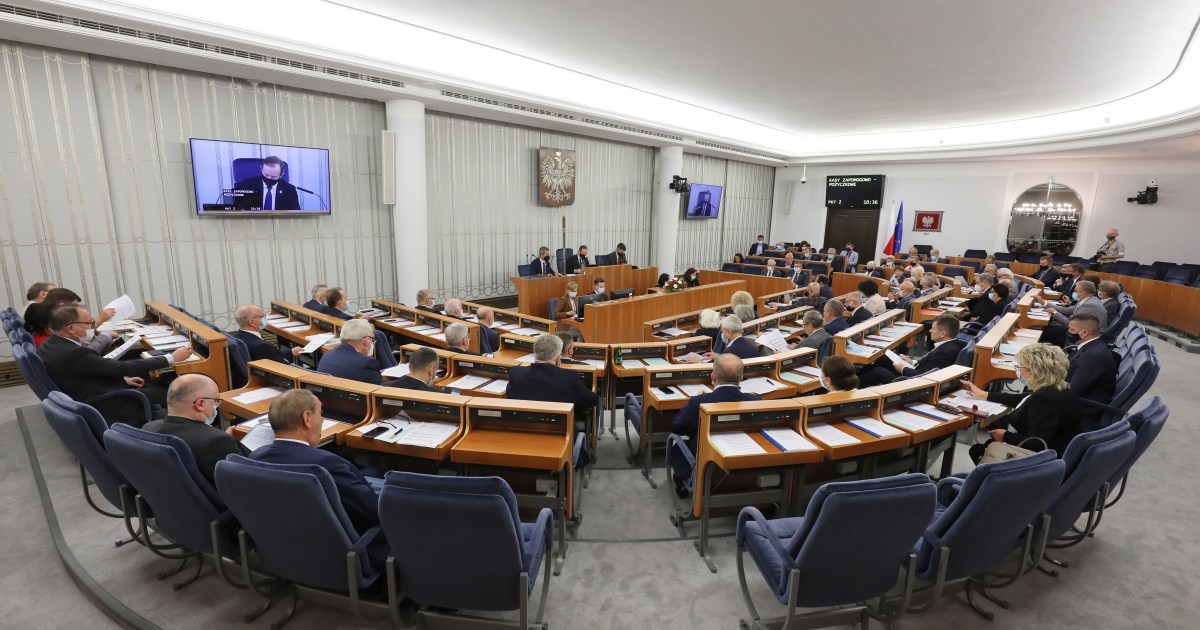Israel has criticized the signing of Polish President Andrzej Duda into a bill restricting Jews' ability to reclaim property seized by Nazi German occupiers and held by communist rulers after World War II, and considered the law anti-Semitic.
On Saturday, Israeli Foreign Minister Yair Lapid announced that he had summoned Israel's charge d'affaires in Warsaw after the Polish president issued an "anti-Semitic" law limiting the possibility of filing complaints against the confiscation of property following the Second World War.
"Today, and this is not the first time, Poland has ratified an immoral anti-Semitic law," Lapid said in a statement.
"This evening, I instructed the Chargé d'Affairs at our embassy in Warsaw to return immediately to Israel for indefinite consultation," the foreign minister continued.
Lapid added that "the new Israeli ambassador to Poland, who was scheduled to go to Warsaw, will remain in Israel for the time being."
He pointed out that the Ministry of Foreign Affairs would recommend the Polish envoy to Israel, who is currently on vacation, to "continue his vacation in his country."
Israeli Prime Minister Naftali Bennett also criticized the law, describing it on Saturday as "a disgrace", and showing "a disgraceful contempt for the memory of the Holocaust."
The United States joined Israel in its objection to the Polish legislation, and Lapid said his country was in talks with the Americans about future moves.
And Polish President Andrzej Duda published a statement yesterday, Saturday, in which he said, "I made a decision today on the law, which in recent months has been the subject of intense and noisy debate at home and abroad, and after a deep analysis I decided to sign the amendment."
Contents of the law
The new law limits the legal validity of complaints filed against confiscation of property to a maximum of 30 years from the date of confiscation, meaning that complaints submitted after that are considered null.
Before World War II, Poland was home to one of the world's largest Jewish communities but was almost completely wiped out by the Nazis, and former Jewish landlords and their descendants campaigned for compensation.
Until now, Jewish expatriates or their descendants could file a claim of illegally seizing property and demand its return, but Polish officials said this creates uncertainty over property ownership.
In 2015, the Polish Constitutional Court ruled that a time limit should be set after which administrative decisions on title deeds could not be appealed.
Poland's parliament adopted changes to the law last week, with the bill setting a 30-year limit on property restitution claims.
Relations between Poland and Israel have recently been tense at the diplomatic level, according to the Israeli Kan channel.
At the end of last June, Israel summoned the Polish ambassador, Mark Magerowski, to protest against the bill, which was then approved by the House of Representatives (the second chamber of Parliament).
The private Israeli channel (12) reported at the time that the head of the Strategic Political Division at the Ministry of Foreign Affairs, Ambassador Alon Bar, summoned the Polish ambassador to Tel Aviv, and expressed to him Israel's strong disappointment with the legislation passed by the Polish parliament.

